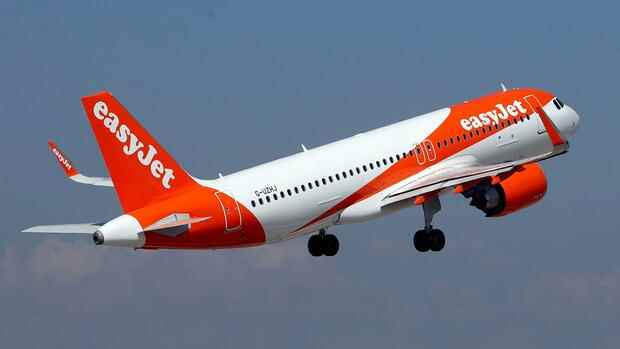Frankfurt Peter Smeets is certain: Aviation will rearrange itself in the coming months. “We hold regular discussions with representatives from the industry,” says the managing director of the consulting firm 360 Aircraft Finance (AF), which focuses on aviation and aircraft finance. Airline managers are currently considering what consequences they will draw from the crisis. “Some want to downsize, sell parts of the company. Others are looking to join other companies, ”says Smeets.
Developing concepts is one thing, says Smeets: “It was only with a deal like Condor, which we arranged and structured, that we showed that we can also deliver.” Since then, he and his company have had a particularly deep insight into the industry.
Smeets is not alone in his assessment. Jens Bischof, head of the Lufthansa subsidiary Eurowings, expects that some airlines will only face serious problems once the industry has recovered from the consequences of the pandemic. “I assume that the wave of consolidation is still ahead of us in an accelerated form,” said the manager recently in the “Tagesspiegel” mobility podcast.
Top jobs of the day
Find the best jobs now and
be notified by email.
The reason lies precisely in the extensive state aid that flowed to airlines during the pandemic. They now have to be paid back together with the interest – that will overwhelm some airlines, said Bischof.
In fact, hardly any airlines have gone bankrupt since the pandemic began in early 2020. There were also only a few takeovers. The state financial injections have saved even long-ailing airlines for the time being. At the same time, the competition watchdog stipulates in many cases that takeovers are prohibited as long as the companies are taking state aid.
Easyjet and Norwegian among the candidates
Lufthansa boss Carsten Spohr therefore speaks of the fact that the “pause button” is currently being pressed during the consolidation of the industry. Advisor Smeets is convinced that this will soon be resolved: “The crisis has shown many airline managers that they simply can no longer afford certain things.”
There are already harbingers of a wave of consolidation. In September, the Hungarian low-cost operator Wizz Air reportedly reached out to Easyjet. This was not officially confirmed, but Easyjet said they had rejected an unfriendly offer from an undisclosed investor.
There is also a long-term candidate for a takeover with the Scandinavian low-cost airline Norwegian. The airline has shrunk drastically, but is still considered to be badly hit. The Alitalia successor ITA is again looking for a strong partner.
Smeets, on the other hand, is reluctant to name potential investors or airlines for sale. He only suggests this: “We have Germany and Europe in view, especially airlines. We’re also looking at bigger airlines. ”
André Muschallik, Managing Partner of the asset management and consulting firm EAM Ventures, adds: “On the buyer side, the greatest interest is currently coming from financial investors.” So-called distressed deals are particularly interesting for investors, including in aviation. What is meant is the takeover of companies that are in a crisis.
“It’s not about earning money first and foremost with the operational business. This is usually costly, “says Muschallik:” The task is rather to realign a company with a business model that is completely or partially intact. “
Condor was such a case, says Smeets. Smeets designed the takeover together with Christophe Mostert from the consulting firm M2P Consulting. “Condor is a blueprint for the mechanics of such concepts,” says the consultant. “But of course every case is different, the interests of the individual stakeholders are individual.”
It is quite possible that the current environment will soon bring a new “Condor case” to the aviation experts. The rapid spread of the Omikron variant and the associated uncertainty are already slowing down the recovery in air traffic. For example, the European air traffic control organization Eurocontrol had expected at the beginning of December that 82 percent of the pre-crisis level would be flown again. In fact, the value was eight percentage points lower.
Climate pressure is driving takeovers
Deutsche Flugsicherung (DFS) also identified a “clear kink in the growth curve” in November. While there were still 208,414 flights in German airspace in October, the number fell by more than 33,000 flights in November.
DFS does not attribute this to the normal weakening in winter alone. The momentum hoped for by everyone in the industry as a result of the opening of the USA to travelers also did not materialize as expected.
The well-known holiday airline was taken over by asset manager Attestor in 2021. This could serve as a model for further takeovers in aviation.
(Photo: Bloomberg)
This is a problem for the airlines. Because they have only just restarted their flight operations for a lot of money. Now some of the hoped-for proceeds could not materialize. And that’s not the only driver behind the consolidation.
Added to this is the growing pressure to make flying sustainable. It is precisely because aviation has had a difficult time doing this that it is moving into the focus of potential buyers. “Investors rightly pay close attention to the topic of ESG. But that doesn’t stop them from working in the aviation industry, ”says Muschallik from EAM Ventures. It is always better to be able to bring about positive developments on this topic as an active investor than to just have to watch in the role of a passive investor.
“At the moment, the topics of corona and overcoming the crisis continue to dominate the airlines,” adds Smeets from 360 AF: “The topic of climate neutrality will catch many people really badly.”
More: Lufthansa Technik boss: “We are extending technical life”
